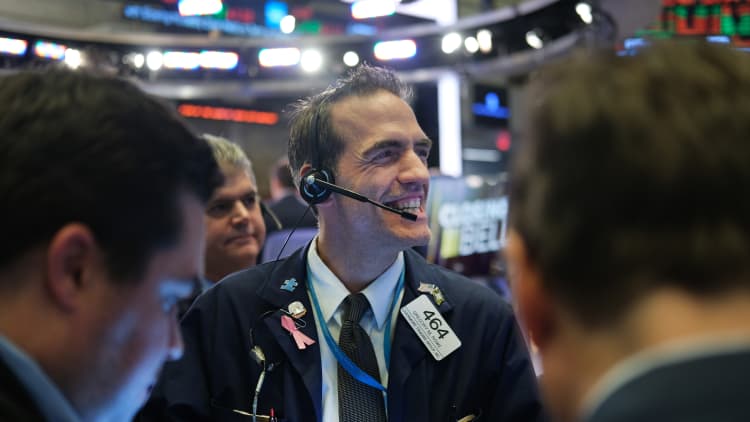
The Dow Jones Industrial Average on Friday broke above 29,000 for the first time ever.
Four experts discuss the record and what it means for the rest of 2020.
Andrew Slimmon, senior portfolio manager at Morgan Stanley Investment Management, sees a pattern in the market's rally.
"Why 2019 wasn't complicated is it followed exactly the path of 2012, 2016 which was we had a big correction in 2018 just like we did in 2015, just like we had in 2011, and people sold. We had big outflows the next year, and it takes about a year of outflows as the market rallies until people say, 'wait a minute, I made a mistake.'"
Kate Moore, head of thematic strategy for BlackRock's global allocation investment team, said a looming election could curtail investment spending.
"We saw a little bit of a pop post the tax cuts. You know, I know there are lots of different views on this but my core view is that in an election year, you always are going to get weaker capex. We of course have weaker capex in the second half of 2019 and people say, 'is it going to pop back?' But I think there's so much uncertainty still out there in the world, even though we're de-escalating on trade and hopefully we get the phase one deal signed next week, even though I think we have a pretty solid economy and actually some green shoots outside of the U.S., all these things should be positive and of course they're getting represented in some of the good stock market action."
Diane Swonk, chief economist at Grant Thornton, said the Federal Reserve could be unwittingly creating a problem for the market.
"Important for the Fed is the delineation between the stock market indices and the broader economy. 100 companies counted for 50% of profits back in the 1970s. Now only 30 major companies of the largest most profitable companies account for 50% of the profits today so the stock market is even less reflective of the overall economy so there is a bias in the broader stock market indices, that it's not really reflecting the economy and profits in the broader economy as much as it has in the past and I think that's really important too, but clearly that's where the tension is. Do we risk stoking stock market bubbles and asset price bubbles instead of broader inflation as the Fed cuts rates and so far we've seen almost all of the Fed stimulus show up in things like asset prices."
Jan Hatzius, chief economist at Goldman Sachs, applauded the December jobs report which came in under estimates.
"I think it's still a very solid labor market. You saw that in the household survey as well as the employment rate which came down a little bit on an unrounded basis … so clearly we're still making headway."






